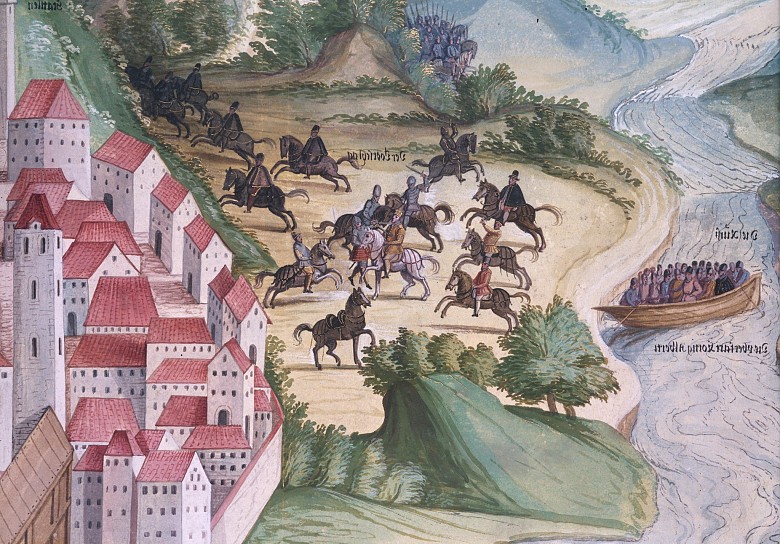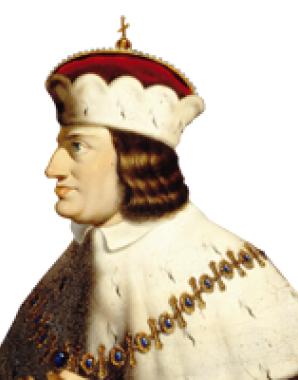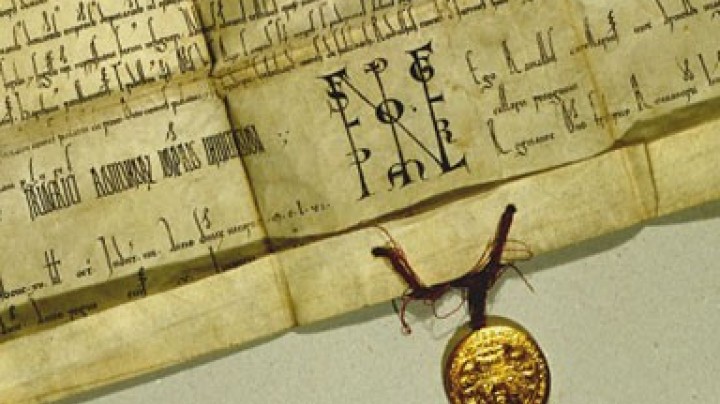John the Parricide: murder in the House of Habsburg
This Habsburg earned his place in the annals of history with a bloody deed. The murder of his uncle Albrecht I robbed the dynasty of a capable and resolute head and hit the family at a particularly damaging juncture.
John was the only son of Duke Rudolf II and Agnes, daughter of King Ottokar II Přemysl of Bohemia. He could thus look back on an illustrious line of ancestors: his father Rudolf (II) was the youngest son of the first Habsburg on the throne of the Holy Roman Empire, King Rudolf I. John’s father was initially enfeoffed with the duchies of Austria and Styria jointly with his elder brother Albrecht in 1282. When this joint regency was rejected by the Austrian elites, governance passed to Albrecht as sole ruler in 1283. Rudolf was to be compensated in the form of another sovereign territory or with money. At the death of King Rudolf I in 1291 this issue had still not been resolved. However, efforts had been made by Albrecht, who had been elected Roman-German king in 1298, to seize the counties of Holland, Zeeland and Friesland which lay on the north-western margins of the Empire, possibly with a view to giving them to his brother Rudolf at a later date.
On his mother’s side John was descended from the Bohemian royal dynasty of the Přemyslids. His mother Agnes was a daughter of Ottokar II Přemysl, the powerful adversary of the Habsburgs in the struggle for the Babenberg inheritance. After Ottokar’s death in the Battle on the Marchfeld in 1278 Rudolf II was married to his daughter. At the same time Rudolf’s youngest sister Guta was married to Ottokar’s son and successor Wenceslas II. The children’s wedding – the protagonists were between seven and nine years old at the time – was taken as a symbol for the reconciliation between the two dynasties.
John’s father died unexpectedly in 1290 while visiting his sister at Prague, before the birth of his son. John lived with his mother, initially in Swabia and later in Prague. The still unresolved issue of the compensation due to his father from his family was followed by a further setback: after the death of his uncle, King Wenceslas II of Bohemia in 1305 and the murder of his cousin King Wenceslas III in 1306, John was passed over in the ensuing conflicts to gain the throne, despite his descent on his mother’s side from the royal family. Not even in the House of Habsburg did he find any supporters, as his uncle Albrecht, king of the Holy Roman Empire, was intent on installing his own son Rudolf III as king of Bohemia.
John demanded at the very least the surrender of his paternal share of the ancestral lands in Swabia. This demand was rejected by Albrecht, who was planning to reorganize the Swabian possessions and wanted to avoid any further fragmentation of Habsburg dominions. Albrecht put his nephew off with promises of future compensation.
Driven by fury at this repeated affront and encouraged by his Albrecht’s rivals in Swabia, John resorted to violence. As Albrecht was crossing the River Reuss on a journey to his ancestral dominions in May 1308 and became separated from his companions, he was ambushed by John and his fellow-conspirators. Before the eyes of his wife and the lords of his retinue Albrecht was killed by John with a blow from his sword that split his skull.
Afterwards John managed to flee but had powerful opponents: Albrecht’s successor in the Empire, Henry VII, had the regicide outlawed. Agnes, Albrecht’s daughter and the dowager queen of Hungary, had her cousin pursued with an overt desire for revenge.
John’s subsequent fate is unknown. In 1312 he begged Henry VII for mercy in the northern Italian city of Pisa. It is presumed that he was being held prisoner there or doing penance as a monk for his bloody deed. An inscription on an only partially preserved tombstone in the abbey church of San Nicolo in Pisa suggests that he died shortly afterwards.
In memory of this bloody deed the abbey of Königsfelden was built at this place on the river so that prayers could be said in perpetuity for the salvation of Albrecht’s soul, since he had died unshriven, without the offices of a priest.














